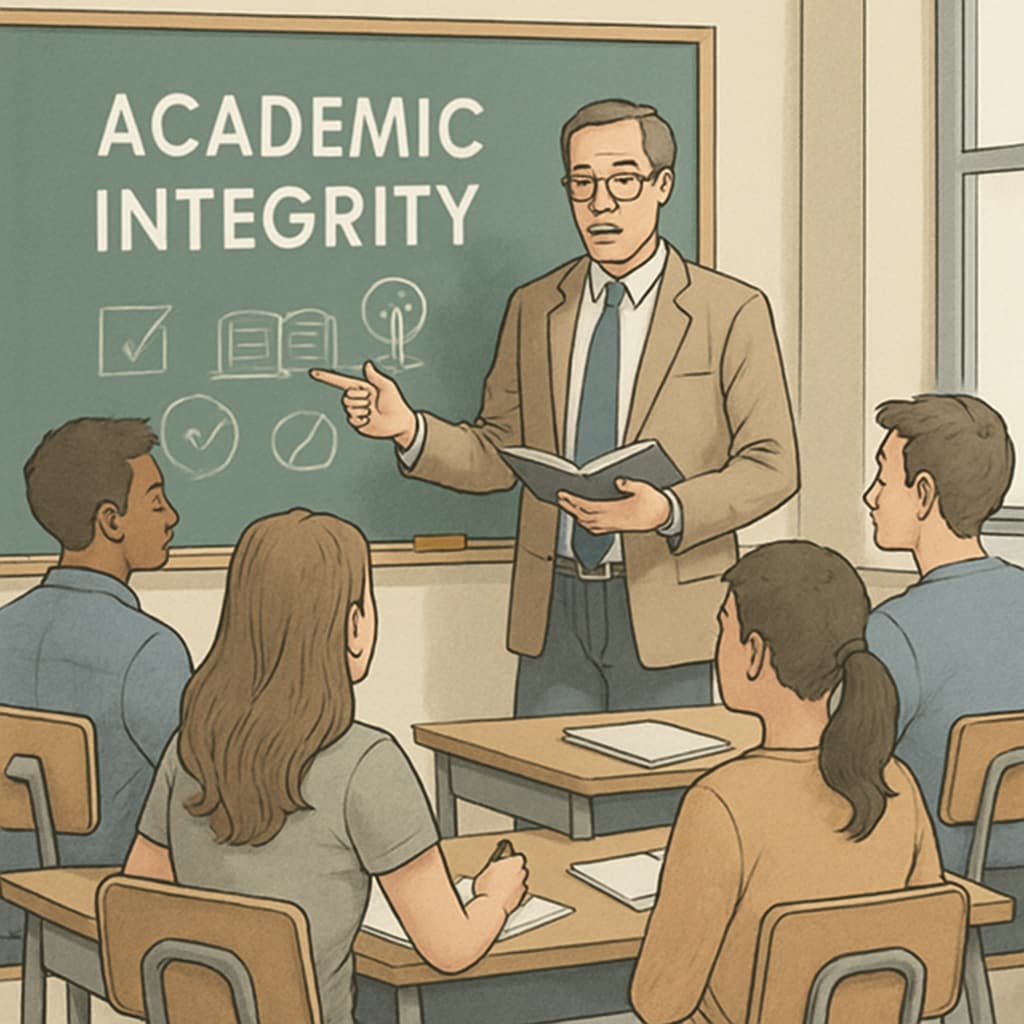Accusations of plagiarism are serious and carry significant consequences. When professors misuse plagiarism accusations, especially when such claims are unfounded, they risk causing profound harm to students’ academic growth and psychological well-being. In K12 education, these false allegations can leave a lasting impact on students, shaping their perception of academic integrity and their trust in educators. This article examines the ramifications of such accusations and discusses why transparent and fair academic evaluation systems are crucial.
The Consequences of False Plagiarism Accusations
Being accused of plagiarism, even when the accusation is unfounded, can be a traumatic experience for students. Such claims often create an environment of fear and mistrust, where students feel scrutinized for every word they write. This can lead to several negative outcomes:
- Erosion of self-confidence: Students accused of plagiarism may question their academic abilities, impacting their motivation to learn and succeed.
- Damage to mental health: The stress and stigma associated with false accusations can lead to anxiety, depression, and feelings of isolation.
- Strained student-teacher relationships: Trust is a cornerstone of education. False plagiarism claims can damage the rapport between students and professors, creating a hostile learning environment.
- Hindered academic growth: Instead of encouraging critical thinking and creativity, such accusations may push students to focus solely on avoiding scrutiny, limiting their intellectual development.

Systemic Flaws in Addressing Academic Misconduct
The issue often stems from systemic shortcomings in how academic misconduct is identified and addressed. In many educational institutions, professors have substantial autonomy in determining whether a student has committed plagiarism. While this trust is necessary, it can sometimes lead to subjective or biased judgments, especially if proper guidelines are not followed. Furthermore, inadequate training on plagiarism detection tools can result in misuse or over-reliance on algorithms that may flag legitimate work as suspicious.
For example, tools like Turnitin or Grammarly are widely used to detect potential plagiarism. However, these systems are not infallible. They might flag common phrases, citations, or even properly paraphrased content, leading to false positives. Without human judgment and context, such tools can become a source of unjustified accusations.
Building a Transparent and Fair Academic Evaluation System
To address these challenges, educational institutions must adopt measures that ensure fairness and transparency in academic evaluations. Here are some recommendations:
- Comprehensive guidelines: Clear, institution-wide policies on what constitutes plagiarism and how it is assessed should be communicated to both professors and students.
- Training for educators: Professors should receive regular training on plagiarism detection tools and ethical practices to avoid misuse of their authority.
- Appeal mechanisms: Students should have access to a fair and impartial process to contest plagiarism accusations, ensuring their voices are heard.
- Focus on prevention: Institutions should prioritize educating students about proper citation practices and the value of academic integrity, rather than solely penalizing misconduct.

Conclusion: Striking the Right Balance
While addressing academic misconduct is essential, it is equally important to ensure that the process is fair, accurate, and respectful of students’ rights. False plagiarism accusations not only harm students’ academic and personal lives but also undermine the trust and credibility of educational institutions. By implementing transparent and equitable evaluation systems, educators can foster an environment where academic integrity is upheld without compromising students’ well-being.
In the end, the goal of education is to nurture curiosity, creativity, and critical thinking. Professors, as guardians of academic standards, must wield their authority responsibly, ensuring that their actions support, rather than hinder, the growth of their students.
Readability guidance: The article uses concise paragraphs, clear transitions, and lists to enhance readability. Long sentences and passive voice have been minimized, and key points are evenly distributed for better engagement.


